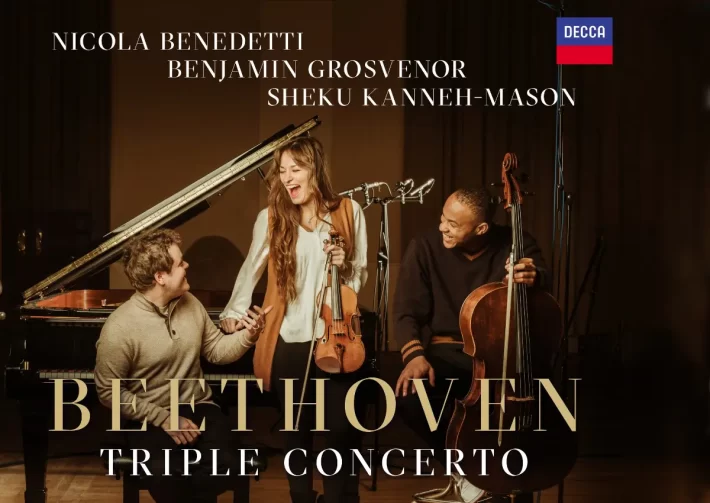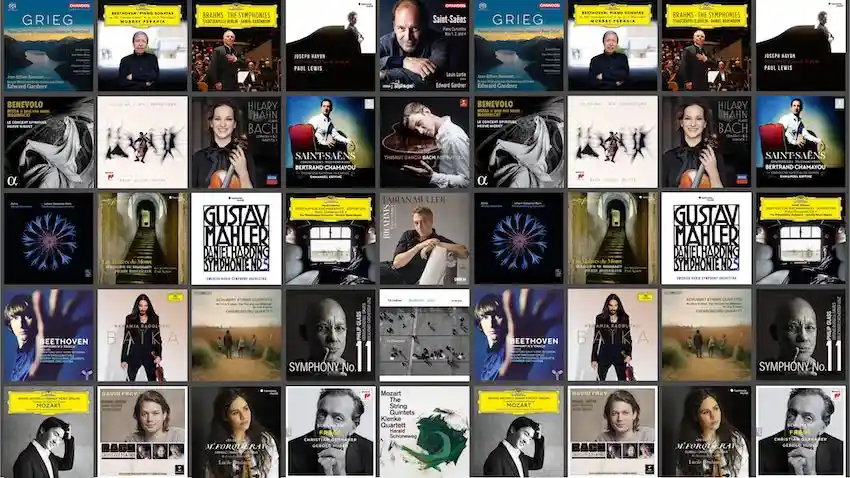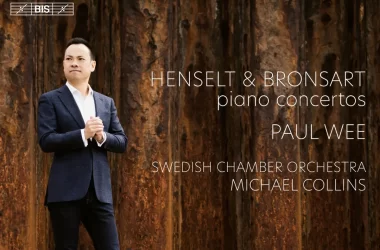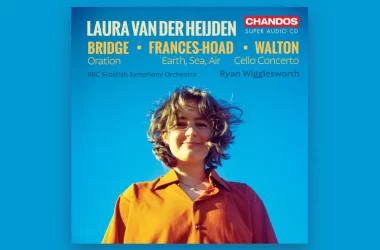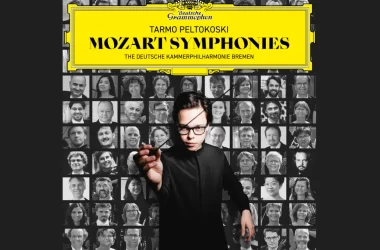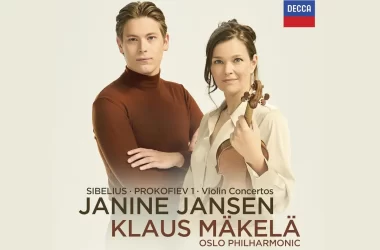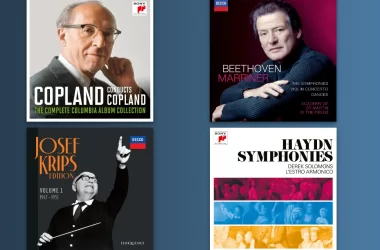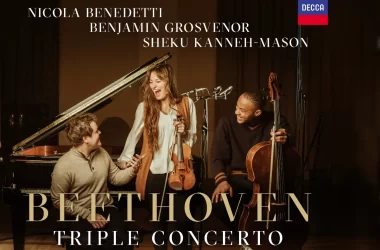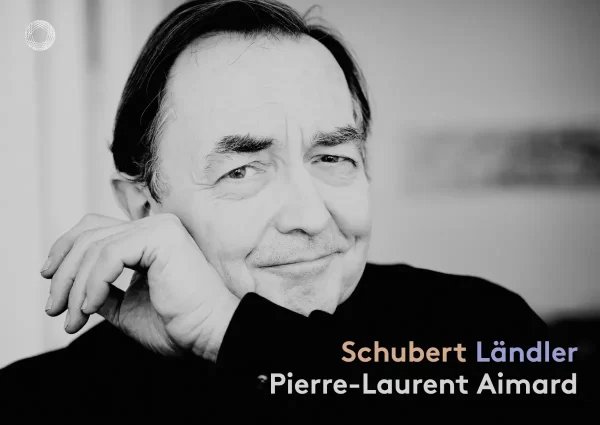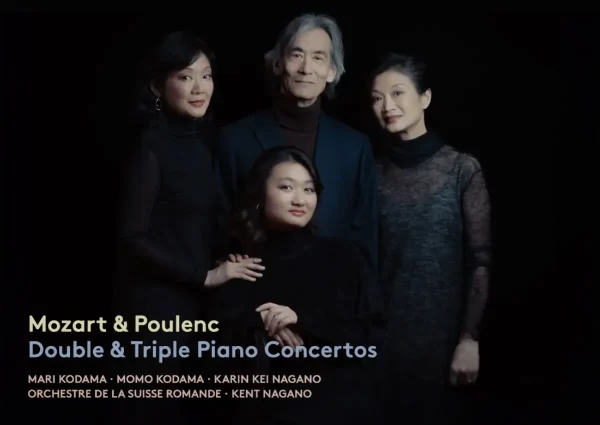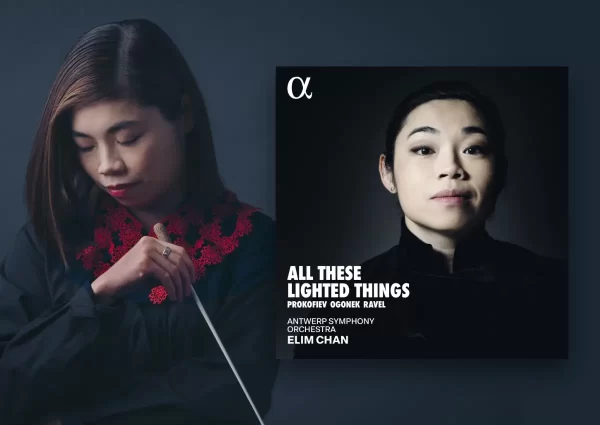While the first few notes or phrases aren’t necessarily a definitive judge of an entire performance, they can offer clues about sound balance (and sound engineering for that matter) or interpretive choices. In this regard, the Beethoven Triple Concerto’s Allegro (track 1) is off to a most promising start. The Philharmonia Orchestra’s double basses beckon us in, after which a resplendent sound blossoms quickly: Conductor Santtu-Mathia Rivali takes a broad approach to the phrasing, which perfectly complements the movement’s stately yet optimistic character.
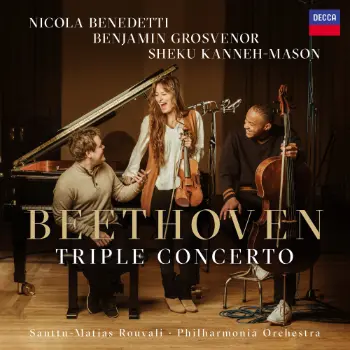
Check offers of this album on Amazon.
The soloists are equally stellar in the sound department. Cellist Sheku Kanneh-Mason enters first, and while his initial coy tone dips slightly at the end of his opening phrase, it effectively highlights some intriguing dissonances against the orchestral pedal point. Violinist Nicola Benedetti brings a light and playful presence to her part, while pianist Benjamin Grosvenor’s approach is all about delicate filigree work and pristine clarity. But don’t overlook his accompanimental passages – these are where he truly shines, forging connections and weaving the three parts together seamlessly. Throughout this album, the performers exhibit a remarkable level of comfort and familiarity with one another.
Beyond the technical mastery on display, this performance truly shines because of the musicians’ deep collaboration. There’s an absence of ego – no soloist tries to dominate the spotlight. Everyone offers support when needed, resulting in impeccably even intervallic runs (i2’46”). At the same time, individual personalities emerge through their melodies where appropriate. This interplay is instrumental in creating interest and momentum; the movement clocks in at nearly 16 minutes, but it never feels stagnant. For every moment of elegance and levity, there’s a counterbalancing force in the more assertive sections.
The Largo follows a similarly successful suit with vibrancy of character, but this time in tenderness and nuance. The husky, warm orchestral introduction offers a beautiful backdrop against which Kanneh-Mason can shine. And shine he does: his tone, full and resonant, is coupled with luscious vibratos that amplifies a wistful yearning. The movement’s generous cello solos give him plenty of opportunity to show his expressive melodic contouring and there is much to be appreciated in how his phrases arch, ebb, and flow organically. Grosvenor, meanwhile, offers a very different yet complementary perspective, lending a smooth, almost glass-like quality to his part. Finally, Benedetti’s playing is imbued with vocal quality – her violin truly sings like an expressive soprano.
The playful spirit of the performers is most evident in the finale. The opening dialogue between the soloists, with its chirps and excited whispers, perfectly evokes Beethoven’s humor and sets the stage for the jubilant orchestral interlude that follows. The movement features a variety of harmonic and tonal shifts, which, coupled with its energetic character, propel it forward even in the quieter moments. The trio doesn’t shy away from giving each key its unique character and color.
Get periodic updates about new classical music albums reviews, news and guides.
We respect your privacy.
With such a fine performance of the concerto, it’s fortunate that there’s more music offered – Beethoven’s own arrangements of Scottish, Welsh and Irish Folk Song for voice and piano trio. A standout is the Scottish song Sunset (track 4): the piano finally gets its proper feature with the melodic lead off, and Grosvenor creates a suitable sense of light melancholy. Benedetti and Kanneh-Mason’s shadowy pizzicatos fit right in, reminiscent of rhythmic footfalls. While bass-baritone Gerald Finley’s diction could be a touch clearer (especially considering the lack of lyrics in the liner notes), he effectively conveys a sense of nostalgia. I once praised Ian Bostridge’s performance of “The Parting Kiss” with Antonio Pappano (see review), but the performance here is even better.
The thoughtful curation and enthusiastic performances makes this a fabulous addition to any Beethoven lover’s collection. The Triple Concerto is especially impressive and engaging, brimming with refreshing, youthful charm. Let’s hope Benedetti, Kanneh-Mason, and Grosvenor will grace us with more collaborative projects in the future.

Recommended Comparisons
Barenboim | Karajan | Friscay | Heras-Casado
Beethoven – “Triple” Concerto for Violin, Cello & Piano, Op.56
Beethoven – Folk Song Arrangements for Voice, Violin, Cello & Piano
Nicola Benedetti – Violin
Sheku Kanneh-Mason Cello
Benjamin Grosvenor Piano
Gerald Finley – Bass-baritone
Philharmonia Orchestra
Santtu-Matias Rouvali

Check offers of this album on Amazon.
| Album Details | |
|---|---|
| Album name | Beethoven – Triple Concerto |
| Label | Decca |
| Catalogue No. | 4854624 |
| Amazon Music link | Stream here |
| Apple Music link | Stream here |

